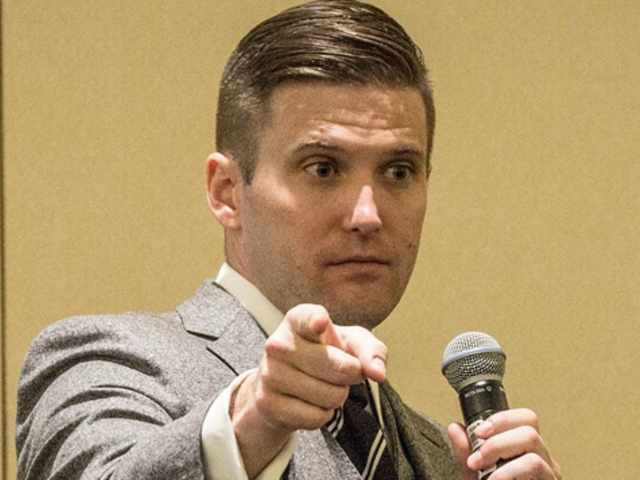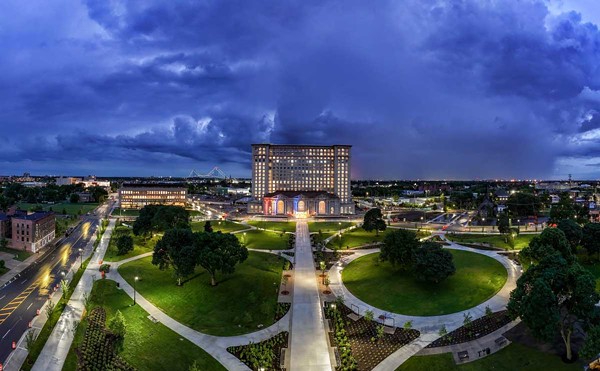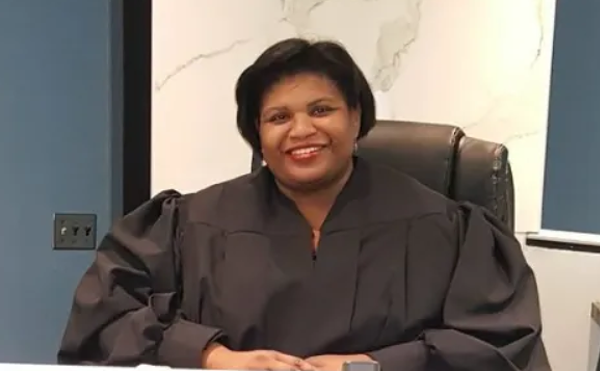With all of the Fake News coming out of NBC and the Networks, at what point is it appropriate to challenge their License? Bad for country! —Donald J. Trump, tweeting mindlessly, Oct. 11, 2017
The answer to the spoiled infant-in-chief's question, naturally, is never, since A) networks aren't licensed, only stations are B) the First Amendment guarantees their freedom of speech and C) NBC doesn't do "fake news."
Unfortunately, the occupant of the adult day care center on Pennsylvania Avenue, as one Republican senator calls it, has no more interest in facts than a banana has in the Beatles.
But forget the social pathology of our terminally messed-up president for a moment, though I intend to come back to it.
What's all this about "fake news?" I've been doing journalism in all different media since 1977, and never heard that term until a few months ago. Oh, politicians have always been unhappy with what we did, and attacked us.
"That's a biased crap poll," someone from Walter Mondale's presidential campaign snapped angrily at me in October 1984, when I asked about a survey showing his man far behind Ronald Reagan. He was, of course, pissed — mostly because he knew it wasn't a "biased crap poll" but reality.
Conservatives from the elegant William F. Buckley Jr. to the various felons of the Nixon administration howled about the "liberal" media. Conservatives and liberals sometimes accused us of getting things wrong... and sometimes we did.
But nobody ever accused Walter Cronkite or Bob Woodward and Carl Bernstein of making stuff up.
When Cronkite told us "and that's the way it is," some may have pissed and moaned a bit, but we accepted that was, more or less, the way it was. But not anymore.
Read or hear a story you don't like, and, especially if you are on the right, it's automatically "fake news."
That just doesn't mean getting something wrong. As the literary watchdog PEN America defines it, fake news is "demonstrably false information that is presented as a factual news report with the intention to deceive the public."
That's precisely what the Russians seem to have done to try and sway the election by planting phony stories on Facebook, for example. You'd expect that of them.
But today, according to a poll done for Politico by the polling firm Morning Consult, 46 percent of voters think the mainstream U.S. news media invent fake news about Donald Trump. That may represent the single greatest triumph of the big lie technique since Nazi propaganda minister Joseph Goebbels either chomped cyanide or blew his brains out in 1945.
Trump and his minions have accused the mainstream media of manufacturing fake news so often and for so long that nearly half the country's voters believe it. Ironically, nothing could be further from the truth. Few outside journalism may believe it — but nobody in the mainstream media ever makes stories up.
They really don't. Yes, there have been a few journalistic suicide bombers who did make up phony stories — Jayson Blair, Stephen Glass, Janet Cooke. But that's three people out of tens of thousands. None of them did so for political reasons; all were severely troubled and were fired and essentially barred from working for any respected journalistic institution for life.
My guess is that there are a far higher percentage of corrupt doctors and lawyers than journalists. Anyone who has worked in a newsroom knows that hours are spent agonizing over making sure stories are fair and as balanced as possible.
That doesn't mean that journalists don't have opinions. I have no doubt that most working journalists loathe Donald Trump, in no small part because he represents everything we hate. He lies constantly and recklessly and has no respect for the "truth" except as it serves his needs. He also stirs up hatred and chaos, and offends those of us who are patriotic or have some reverence for the history, laws, and institutions of this country.
I mostly write columns and have the luxury of expressing my opinions to a degree — though I always try to back them up with facts, which is usually what led me to them in the first place. News reporters are supposed to merely report what is news, as fairly and impartially as possible.
That presents a special challenge, however, when you are dealing with a man, especially a president, who lies all the time.
Do you just let his lies stand? Do you attempt to correct the record in the news story? All politicians shade the truth, and most tell a few whoppers on occasion. But Donnie lies even when telling the truth might be easier and better.
Journalism is more than stenography. There is, of course, no such thing as "objective" or value-free reporting. If there was, we'd write stories saying things like "the child was traumatized for life but the rapist really had a good time."
There's nothing wrong with questioning the way stories are written and edited, and Americans have been doing it for as long as we've had a country. But why do so many people believe that respectable journalistic institutions make stuff up?
Because we are no longer really one country anymore.
And that is possibly scarier than Donald Trump. Flash back to the long-ago world of the early 1980s. Everyone in metropolitan Detroit got their news from the News or the Free Press, plus a half-hour of local TV news and a half hour of national TV news on one of the three main networks.
They differed mainly in style, and the newspapers had different editorial pages, but otherwise they were remarkably alike, as were papers and newscasts everywhere.
This approach had weaknesses — gay and women and minority news was routinely slighted. But it gave us a common conversation; as a nation and a community, we had similar intellectual furniture.
We may not have agreed on what to think, but we agreed pretty much what to think about, and that facts were ultimately sacred things. That's not true now.
Before 1987, the Fairness Doctrine required that broadcast stations give equal time to both sides of an issue. There was a culture of striving to show balance that permeated the vast majority of news media. Now, that's largely gone.
Right-wingers, who in most cases are anything but conservatives, watch and listen to "news" from their own closed-off little world. The left has MSNBC, which is slanted, but not nearly so much as the media of the right.
Most Americans no longer take or read a newspaper at all. So instead of a common hearth, we have hostile camps.
Bravely, remarkably, a few mainstream newspapers, in the face of declining revenues, strive to make success of it all.
Think of them as journalism's Alamo.
The Loving Touch: Could Coleman Young II actually be Russian? That never occurred to me until his Oct. 25 debate with Mike Duggan, when he suddenly blurted out, "It's time to take back the motherland for the people."
That made me nostalgic as all get-out, since that is exactly what Stalin said when he was pushing his troops to drive the Nazis out of the Soviet Union. Others thought the former Joel Loving was nastily trying to play the race card, but as a former graduate student in Eastern European studies, I knew better!





